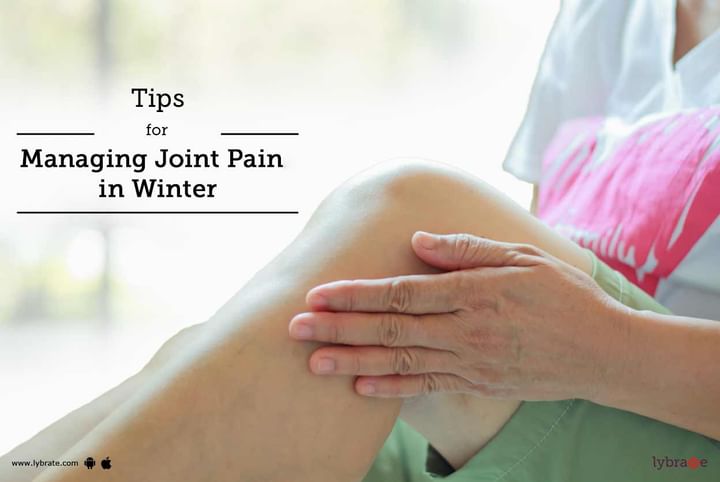Tips For Managing Joint Pain in Winter
People who suffer from arthritis are more likely to experience osteoarthritis symptoms. The intensity of the feeling of knee pain in winter is often linked to barometric pressure. In winter, there is a reduction in the pressure exerted by the air around us. This drop in pressure can cause the tissues around the joints to swell resulting in increased pain. The other possible cause of knee pain in winter can be explained from the influence of heat. Fluid in tissues becomes more viscous during winter. As a result of this increased viscosity, the elasticity of the muscles decreases, resulting in winter aches and pains.
Some scientists believe that the higher pain intensity in winter is to be more of a psychological thing. Seasonal affective disorder is more during winter, and people suffering from mental depression seem to sense more pain during winter as the weather restricts outdoor activities. Improper intake of food also causes knee pain in winter due to undigested material. Even though winter arthritis is uncomfortable, the following tips help to make the joints work better and make you withstand the season easier.
Tips to Manage Joint Pain in Winters
- Physical activity in winter can reduce winter aches and pains and enhance overall health benefits. Low impact activities like aerobics, swimming in a heated pool, weight training, and riding a stationary bicycle can reduce stiffness, increase the blood flow, and support the knees. Thus, winter arthritis can be well managed by doing exercises.
- Diet also plays a vital role. Eating a balanced diet that comprised of low saturated fat, lean proteins, more fiber, and refined carbs helps to improve body functions during the winter. Drinking water throughout the day helps to reduce winter aches and pains. It is essential to consume easily digestible foods like vegetables. Consuming vegetables like carrots and cucumbers that have diuretic properties can help to eliminate waste products from the body.
- Vitamin D deficiency may worsen osteoarthritis. It is necessary to take a supplement vitamin D or ensure to make your diet is vitamin-D rich. Fish oil is a potent source of omega 3 fatty acids. Increase your intake of milk, a rich source of protein and calcium that help to strengthen the bones. Exposing the body to sunlight help to obtain vitamin D.
- Non-steroidal anti-inflammatory drugs such as aspirin and ibuprofen can be used to reduce inflammation and pain. Injecting a viscous substance can decrease the friction of the bones and ease the condition.
Home Remedies for Knee Pain in Winters
- Wrap the inflamed knees with blanched cabbage leaves. This can cool down inflamed knees. Aloe vera also helps to reduce inflammation.
- Comfrey (symphytum officinale) can act as an anti-inflammatory agent. Create a compress using mashed root or comfrey tea soaked bandages can also be used to reduce inflammation.
- Applying an ice-pack can help to reduce swelling and alleviate winter aches and pains. While applying ice-pack, ensure to cover the entire knee. Applying a bag of frozen peas to the area also works well. While using ice or heat therapy, make sure to do them carefully as over agressive and over doing it, can cause problems.
- Steam therapy also helps to reduce pain in your knees. Soak your knee in a steaming hot water for 15 minutes. Applying hot water bag also can relieve knee pain in winter effectively.
- Winter aches and pains all over the body can be relieved by administrating massage therapy by a professional.
- Avoid applying strain or pressure on your knees. Take adequate amount of rest to reduce pain and swelling.
These are basic guidelines to help you. Contact your doctor for further management.



+1.svg)
